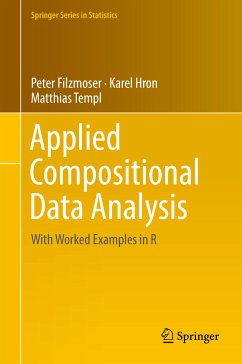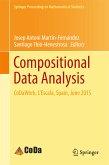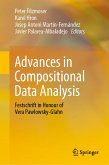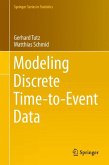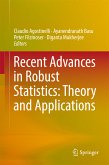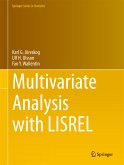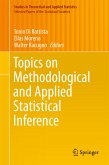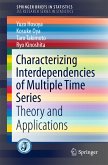This book presents the statistical analysis of compositional data using the log-ratio approach. It includes a wide range of classical and robust statistical methods adapted for compositional data analysis, such as supervised and unsupervised methods like PCA, correlation analysis, classification and regression. In addition, it considers special data structures like high-dimensional compositions and compositional tables. The methodology introduced is also frequently compared to methods which ignore the specific nature of compositional data. It focuses on practical aspects of compositional data analysis rather than on detailed theoretical derivations, thus issues like graphical visualization and preprocessing (treatment of missing values, zeros, outliers and similar artifacts) form an important part of the book. Since it is primarily intended for researchers and students from applied fields like geochemistry, chemometrics, biology and natural sciences, economics, and social sciences, all the proposed methods are accompanied by worked-out examples in R using the package robCompositions.
Dieser Download kann aus rechtlichen Gründen nur mit Rechnungsadresse in A, B, BG, CY, CZ, D, DK, EW, E, FIN, F, GR, HR, H, IRL, I, LT, L, LR, M, NL, PL, P, R, S, SLO, SK ausgeliefert werden.
"Its great advantage is that it is very well written, easy to follow, very didactical, and self-contained. Its great advantage is that it is very well written, easy to follow, very didactical, and self-contained. ... I would definitely recommend researchers to use this book, but they should be aware that compositional data analysis is not just based on simple transformations." (Vera Pawlowsky-Glahn, Statistical Papers, Vol. 61, 2020)
"Its easy-to-read format and didactic layout are designed for researchers from different fields. ... Applied Compositional Data Analysis is a nice book for scholars because it offers a wide spectrum of different types of statistical analysis." (Jan Graffelman and Josep Antoni Martín-Fernández, Biometrical Journal, Vol. 62, 2020)
"The book is appropriate for graduate students with a basic statistical background as an introductory book to compositional data analysis using R as non-beginners. It can also be successfully used by PhD students, researchers and teachers requiring a consistent and through reference." (Márta Ladányi, ISCB News, Vol. 68, December, 2019)
"Its easy-to-read format and didactic layout are designed for researchers from different fields. ... Applied Compositional Data Analysis is a nice book for scholars because it offers a wide spectrum of different types of statistical analysis." (Jan Graffelman and Josep Antoni Martín-Fernández, Biometrical Journal, Vol. 62, 2020)
"The book is appropriate for graduate students with a basic statistical background as an introductory book to compositional data analysis using R as non-beginners. It can also be successfully used by PhD students, researchers and teachers requiring a consistent and through reference." (Márta Ladányi, ISCB News, Vol. 68, December, 2019)

